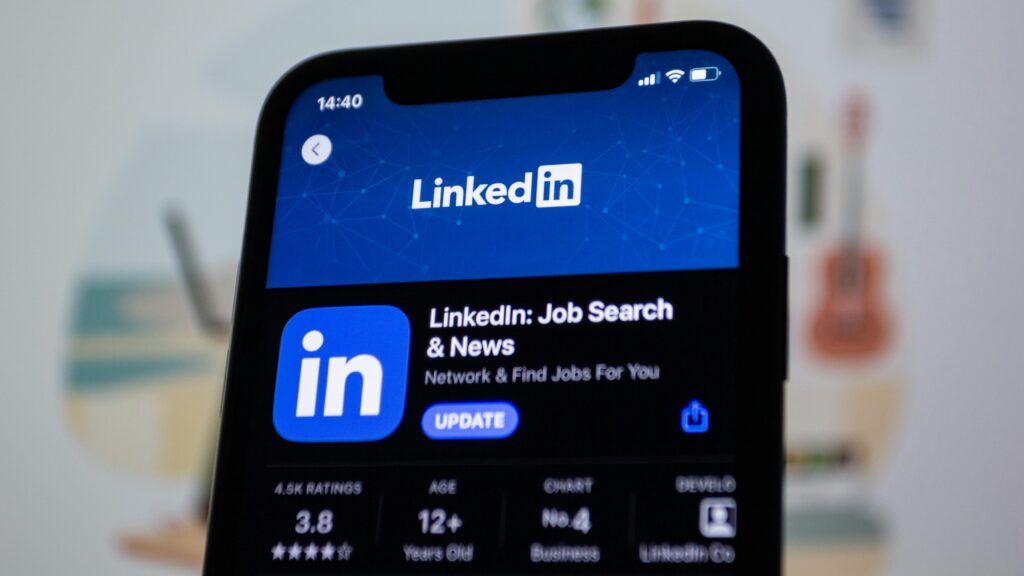Picture this: you receive a LinkedIn message from a recruiter offering you the perfect remote job- high pay, great benefits, and flexibility. After a quick interview, you’re hired, and soon after, they ask for your personal information or money for equipment. It sounds ideal, but it’s actually a well-crafted scam. With LinkedIn job scams becoming more sophisticated and widespread, it’s essential to know how to identify them before falling victim.
The rise of LinkedIn job scams
As the digital job market grows, scammers are taking advantage of platforms like LinkedIn to deceive unsuspecting job seekers. Job scams on LinkedIn often involve fake profiles impersonating recruiters or employees of legitimate companies. These scammers lure victims with attractive job offers, promising high pay, remote work options, and other benefits that sound too good to be true.
One common tactic involves sending congratulatory messages to candidates after a brief and seemingly legitimate application process. These messages may ask for sensitive information or require the candidate to purchase equipment upfront, promising reimbursement later. In many cases, scammers use stolen company identities to make the offer appear credible, making it difficult for job seekers to distinguish between real and fraudulent opportunities.
The rise of remote work has only increased the prevalence of such scams. With more people seeking flexible job options, scammers exploit the demand by offering positions that claim to be remote but are, in reality, a way to obtain personal information or money from job seekers.

Warning signs to watch for
Identifying LinkedIn job scams can be challenging, especially when scammers use sophisticated methods to appear legitimate. However, there are common warning signs that job seekers should be aware of. An unsolicited job offer is one of the first red flags, especially if it comes with no prior interaction. Genuine recruiters typically engage with candidates through established channels, and an unexpected job offer should always be cautiously approached.
Another warning sign is poor communication. Legitimate companies usually maintain a professional tone and ensure that their correspondence is free from spelling and grammatical errors. If a message lacks personalization or seems badly written, it could be an indication of a scam. Additionally, any request for payments, whether for training materials, background checks, or equipment, should be treated with scepticism, as no reputable employer would require such payments from candidates.
Urgency is another tactic scammers use to pressure job seekers into making hasty decisions. They may create a false sense of urgency, insisting that an immediate response is necessary or that there are limited spots available. This pressure is intended to prevent the candidate from taking the time to verify the legitimacy of the offer.
How to protect yourself
Protecting yourself from LinkedIn job scams requires vigilance and thorough research. Before engaging with a recruiter, take the time to verify their identity and the company they represent. Visit the official company website to ensure the job listing is legitimate, and check the recruiter’s LinkedIn profile for endorsements, connections, and recent activity that might indicate authenticity.
Scammers often ask to move conversations off-platform to email or messaging apps like WhatsApp, Discord or Wire. This is a red flag, as it allows them to bypass LinkedIn’s security features. It is best to keep all communications within LinkedIn until you are certain of the recruiter’s legitimacy. LinkedIn also provides warning labels and other safety features that can help identify potentially high-risk content; take advantage of these tools to protect yourself.
If you receive a request for sensitive information, such as Social Security numbers or banking details, do not provide it until you are absolutely certain of the employer’s credibility. No legitimate employer will ask for such information early in the hiring process, and any such request should be treated as highly suspicious.

What to do if you encounter a scam
If you suspect that you have encountered a LinkedIn job scam, it is important to act quickly. Stop all communication with the scammer immediately. Use LinkedIn’s reporting tools to alert the platform to fraudulent profiles or job posts. If you have shared financial information, contact your bank to secure your accounts and prevent any unauthorised transactions.
In addition to reporting the scam on LinkedIn, consider filing a complaint with your local authorities or with the Federal Trade Commission (FTC). These organisations can help track and take action against scammers, potentially preventing others from falling victim to similar schemes. Sharing your experience with others can also be helpful, as it raises awareness and helps other job seekers recognise and avoid similar scams.
The rise in LinkedIn job scams is a reminder of the importance of caution when navigating the digital job market. While many legitimate opportunities are available, scammers are always finding new ways to exploit the system. By staying vigilant, verifying information, and being aware of the warning signs, you can protect yourself from falling victim to these deceptive practices and focus on finding genuine opportunities that advance your career.



